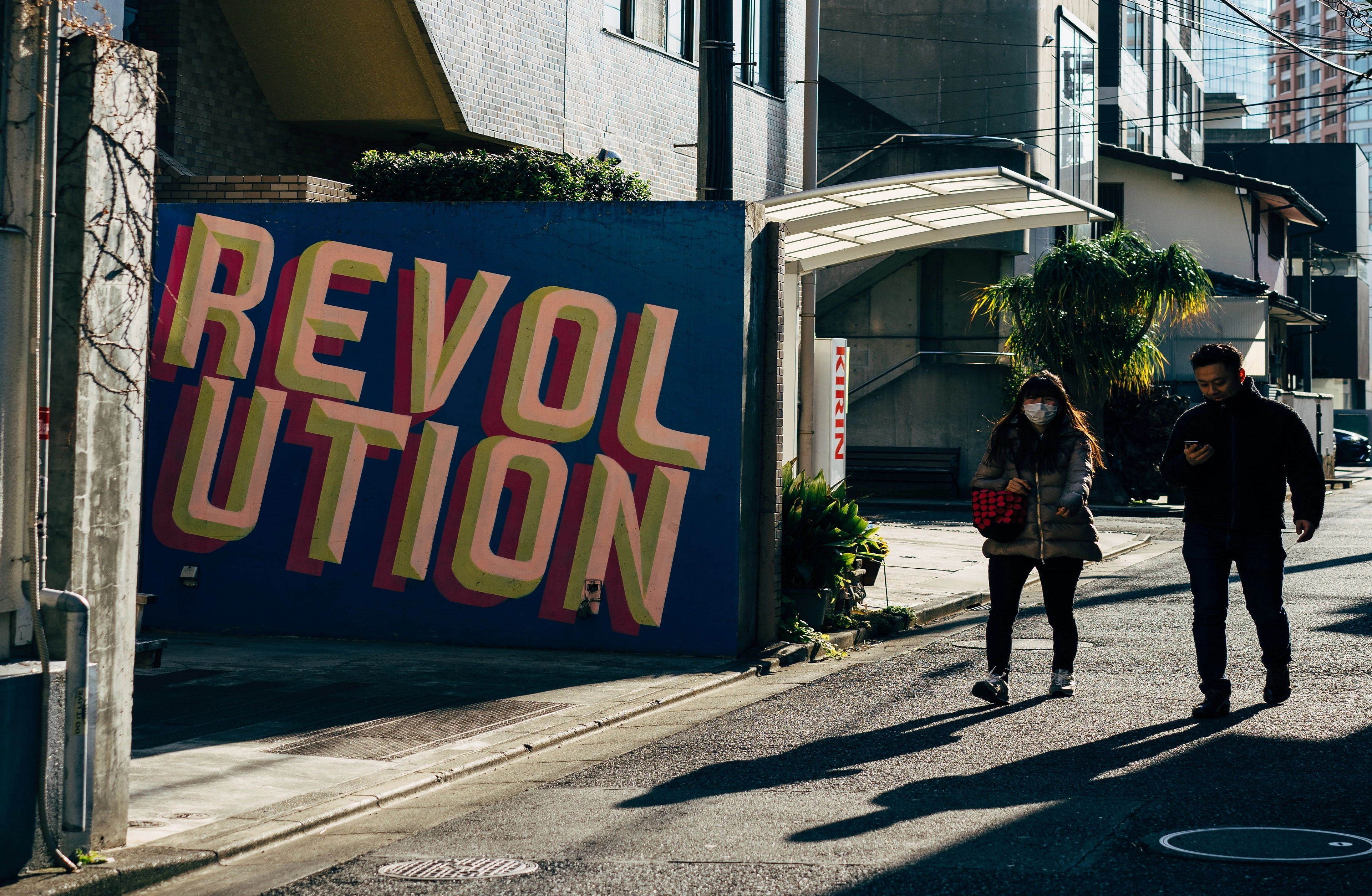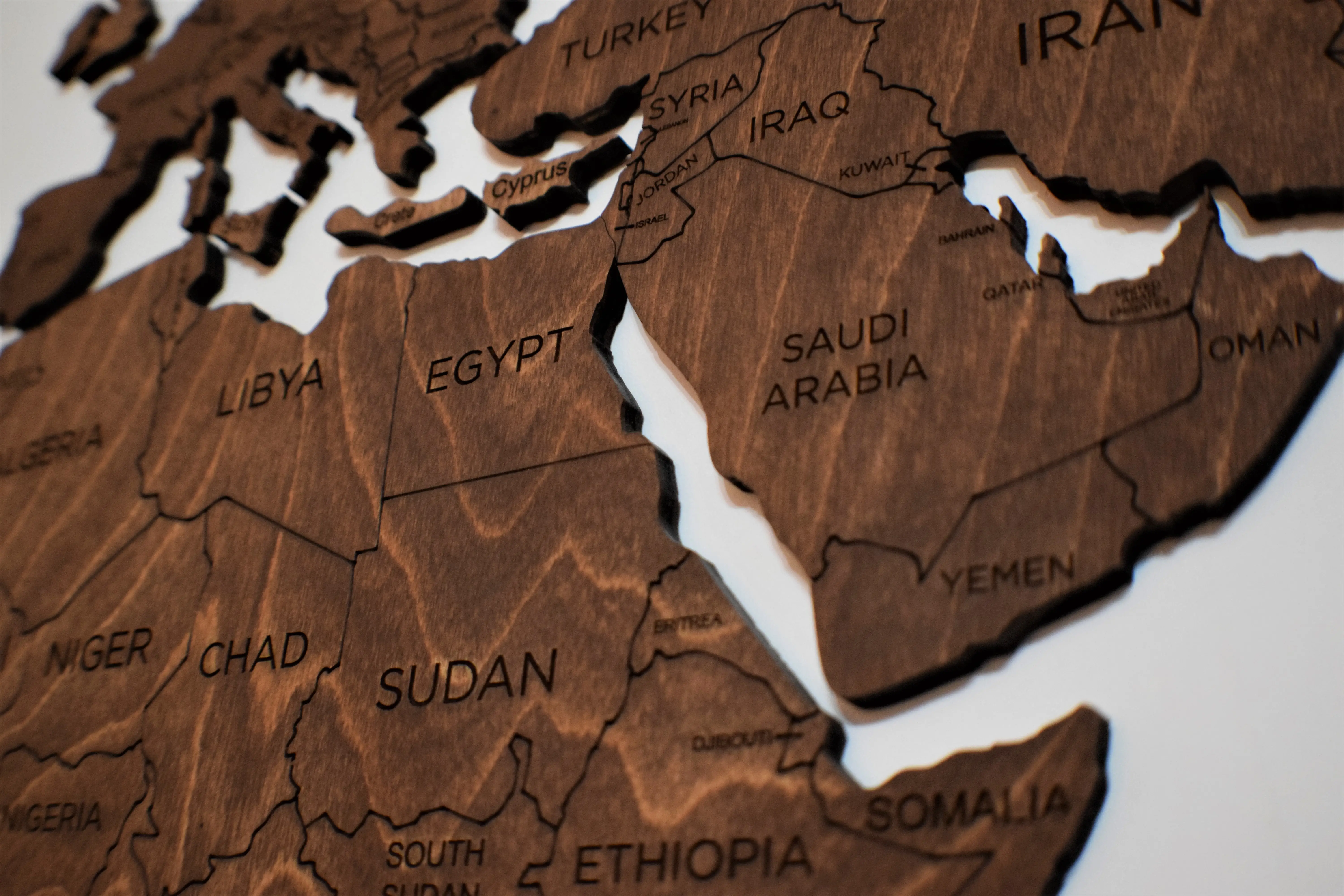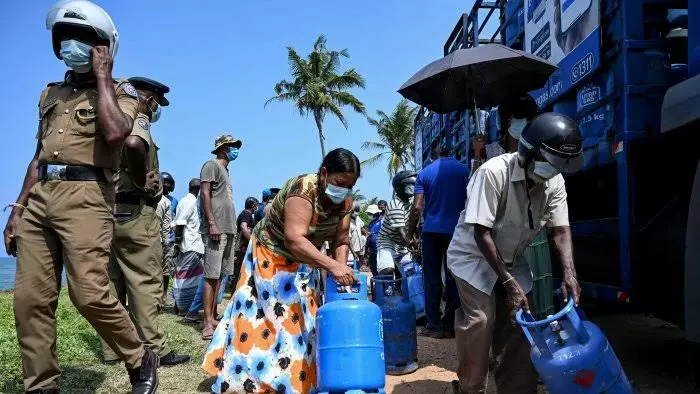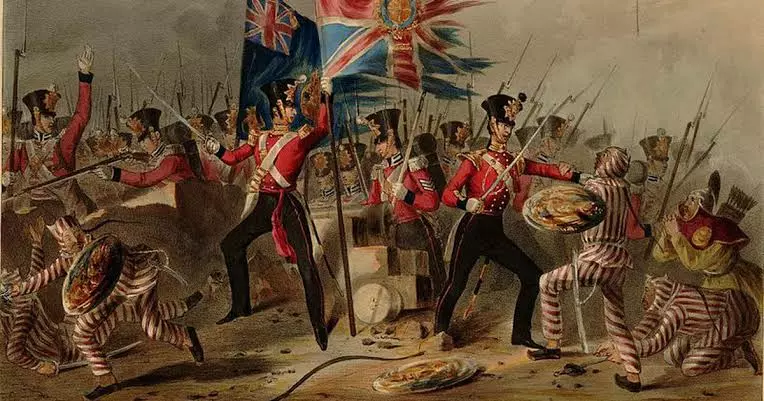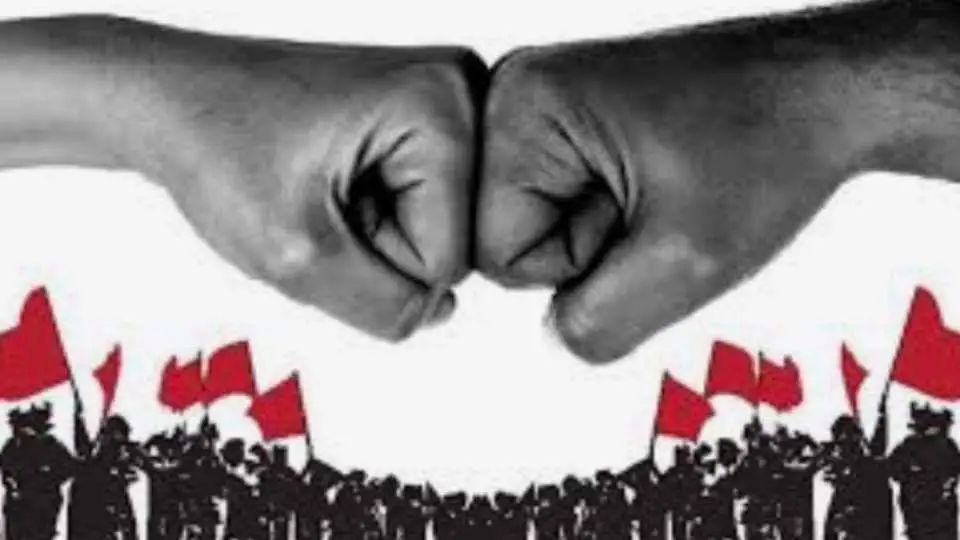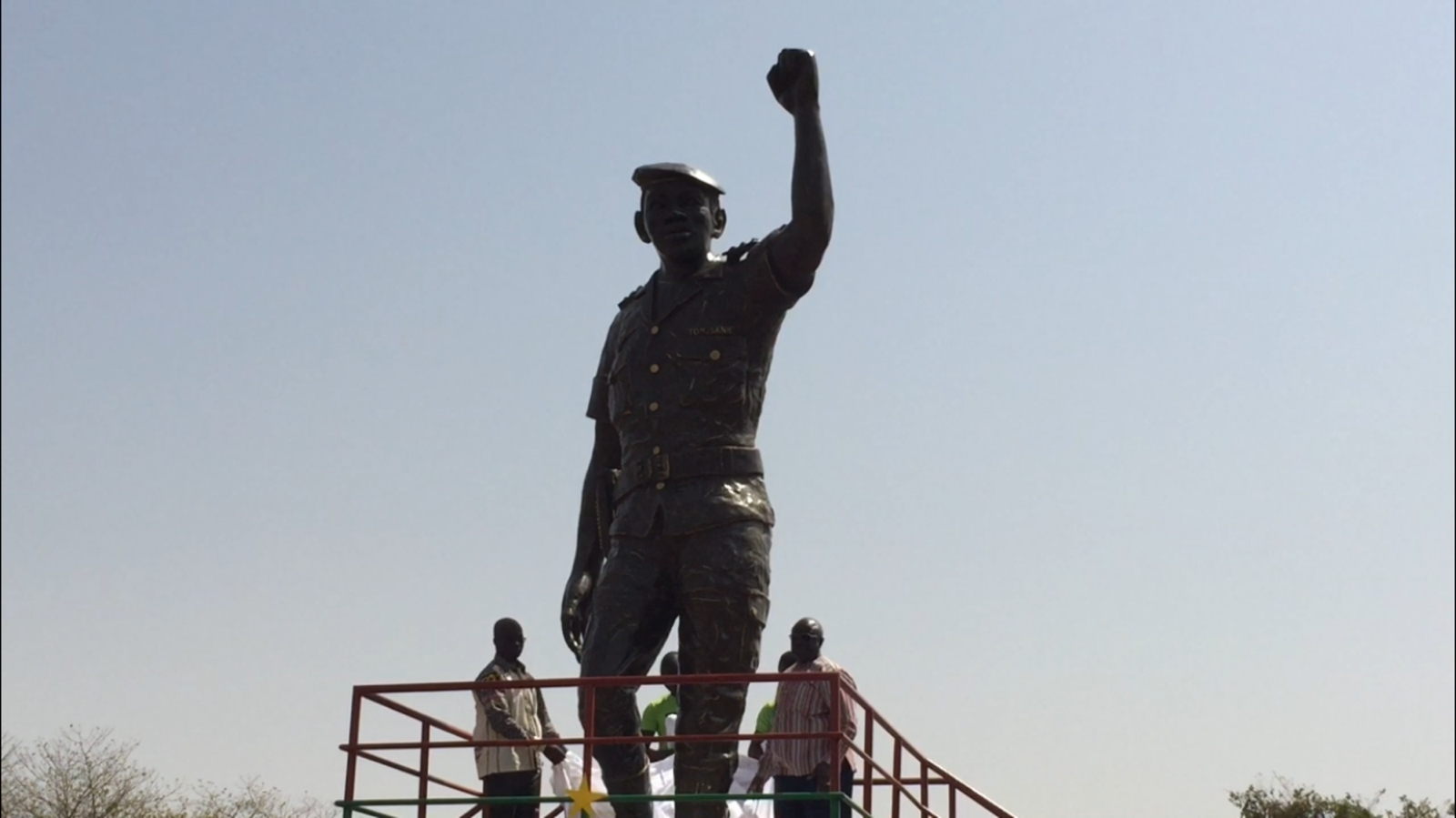The great fear of the imperialist bourgeoisie-and even of the bourgeoisie within the capitalist countries that stand against U.S./NATO hegemony-is that one day the forces of proletarian revolution will control too many of the world’s productive forces for these capitalists to keep up their profits. The socialist revolutions in Cuba and the northern half of Korea may represent the loss of relatively tiny slivers of land for the imperialists, but the imperialists continue to try to undo these revolutions because of the trend that they represent.
This is the trend towards the socialist system replacing the capitalist system, which as Mao observed is inevitable despite the best efforts from the reactionaries to stop the wheel of history. Right now in Cuba, the reactionaries are carrying out their latest move in this futile attempt to stop civilization’s progression. Washington has gotten some of its Cuban imperialist collaborators to stage sensationalized protests, purposed with manufacturing consent for an anti-communist coup within the country. They’re doing it in this moment because Cuba has been plunged into an economic downturn amid the global depression and pandemic of the last year. Their hope is that the spillover from capitalism’s growing crises will create an opening for the re-colonization of Cuba.
But Cuba’s revolution has survived far larger imperialist subversion efforts. And as these global crises continue, the communist side is overall moving towards an advantage. While the U.S., the U.K., and other countries in the imperialist bloc have been especially impacted by Covid-19 due to their deep embrace of neoliberal austerity, China and the other socialist countries have been the most successful at bringing down cases. And China is one of the few countries whose economy is bigger today than it was a year ago, putting Cuba into an ultimately more favorable position than Washington’s Latin American allies are in; the U.S. economy has shrunk while Beijing’s economy has grown.
Faced with this crisis, the imperialist bourgeoisie are maintaining profits by intensifying their exploitation of the global proletariat. The IMF has seized upon the pandemic to carry out increased austerity, privatization, and wage cuts in 81 countries, and Washington think tanks are pushing Biden to implement the highly extractivist and exploitative Trans-Pacific Partnership. For now, the plutocracy is reaping the benefits from these measures to exploit the crisis, with U.S. billionaires having collectively gotten almost a trillion dollars richer in this last year.
Yet by doing this, they’re further digging their own graves. These efforts to foist the costs of capitalism’s crises onto the lower classes have made it so that even in the imperial center, the masses are becoming rapidly alienated from the existing socioeconomic order. In the U.S. in this last year, hunger has tripled among adults and multiplied by as much as fourteen among children. As tens of millions of jobs have been lost and unemployment continues to rise, the American people can expect to receive only $600 in special relief funds. Consequently, going into 2021 around half of the U.S. population is effectively facing poverty. These newly impoverished U.S. individuals make up just a small part of global masses who’ve been pushed into poverty in this last year, who number around 150 million.
Within the countries which have been most impacted by this rapid drop in living standards, the proletariat has been carrying out uprisings that in many cases surpass those from 2019’s wave of Third World protest movements. The U.S. has experienced arguably the largest mass movement in its history, with around a tenth of its population having taken part in 2020’s Black Lives Matter protests. Honduras, Ecuador, Colombia, and other Latin American countries have undergone protest movements in response to the deadly austerity policies which these countries have been subjected to during the pandemic, and to the human rights abuses recently committed by these countries’ neo-colonial regimes. Amid India’s farmers strike from this last month, 250 million Indians have participated in the uprising.
And this explosion of class conflict has resulted in yet another loss of territory and market access for the imperialists; because of the enormous strength of the Bolivian indigenous movement, the country’s U.S.-installed coup regime was forced to hold new elections, which the socialists won. And despite post-election terrorism attempts from Bolivia’s imperialist collaborators, the Movement for Socialism has managed to come back to power within the country. Should a new coup be attempted in Bolivia-which evidence shows almost certainly will happen-it’s hard to see the imperialists overcoming the armed strength of the country’s proletariat.
For the time being, this can’t halt the rollercoaster ride of profits that the super-rich have been on. But at a certain point, a tipping point will be reached in who controls the world’s productive forces. When enough of the globe experiences proletarian revolutions, the proletariat rather than the bourgeoisie will gain the primary global economic leverage.
The rise of socialist China, which recently surpassed the U.S. as the world’s largest economy, is one part of this. But ironically, the imperialists would be able to handle the rivalry from China far better if not for the dysfunctionality that imperialism and capitalism are creating for themselves. The U.S. has been reacting to the rise of Russia and China by attacking these superpowers with trade warfare and ever-tightening economic sanctions, an approach which has weakened the U.S. economy, created additional economic blowback for loyal U.S. allies like Australia, and hurt Washington’s relationship with other core imperialist countries like Germany due to their unwillingness to cut ties with their increasingly important economic allies Beijing and Moscow. This has exacerbated the inter-imperialist rivalry between the U.S. and the E.U., which have been engaged in their own trade war in recent years. Relations between Washington and Europe were just further damaged when the E.U. defied Biden’s wishes for increased anti-China cold war escalations by signing a business deal with China.
These are the kinds of frayings of unity between the imperialist powers that threaten to bring the core capitalist countries closer to revolution. As Stalin observed, one of the main contradictions of imperialism is that the imperialist powers will fight amongst each other for primacy, ultimately weakening imperialism as a whole and making proletarian revolution into a practical necessity for the people within the imperialist countries. Such is becoming the case for today’s imperialist powers, and for the U.S. especially. The trend is that the U.S. is isolating itself not just from the rising superpowers Russia and China, but from some of its most important imperialist allies (largely because of how committed Washington is to isolating itself from Russia and China). No wonder the imperialists are intensifying the exploitation of their neo-colonies; leaning more onto stolen wealth from the Third World is essential for the imperialists during this era of growing isolation and geopolitical fracturing.
The empire is pursuing additional routes towards sustaining its profits, such as expanding the tech industry within the imperial core and planning to assimilate Washington’s Pacific allies into NATO (likely so that they’ll accept a U.S.-centric version of the TPP). But if class struggle-ridden U.S. neo-colonies like India, Colombia, or Chile undergo proletarian revolutions in the near future, all of these maneuverings will be mere band-aids on the empire’s irreparable wounds. Austerity, commodification, and wage slavery can only be increased so much before they can’t make up for the losses of neo-colonies. And these features of late-stage capitalist misery can only be increased so much before the proletariat within the core imperialist countries themselves reach a breaking point.
As the great Marxist educator Michael Parenti has observed, “There can be no such thing as ‘capitalism in one country.’” When the capitalists lose enough, their system won’t be able to sustain itself.
Photo by Markus Winkler on Unsplash
